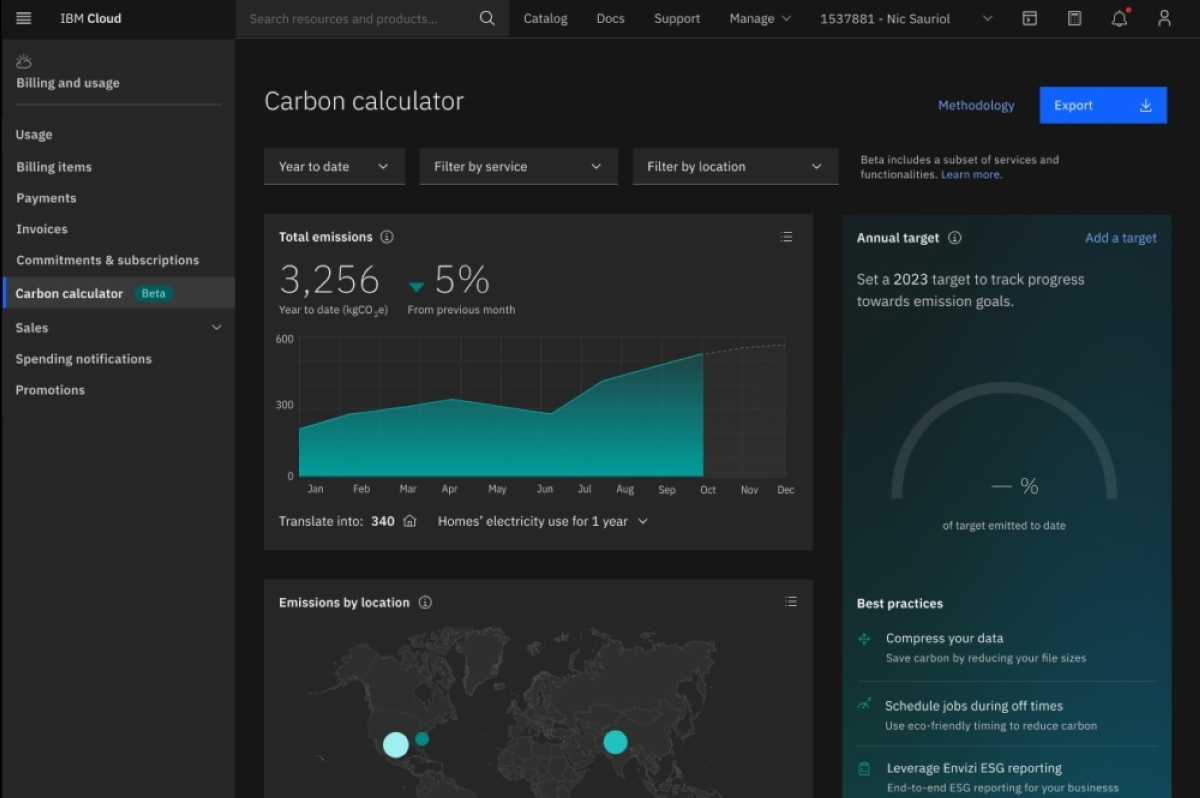SCI-TECH-AI | ChatGPT: Business- How AI powers corporate sustainability
.
Businesses can’t manage their enormous amounts of data
.

A LOT of Asean companies intend or are on their way to becoming green, but the lack of data about sustainability and its interpretation of it is hindering their progress. One proposed solution is the implementation of artificial intelligence (AI) and its capability to process enormous amounts of information that can help organizations achieve their ESG (environmental, social and governance) goals.
This was one conclusion reached during the recent virtual media briefing held by tech consulting company IBM and a few of its partners.
Agnes Heftberger, general manager and technology leader of IBM AEANZK, said “AI is the only way to deal with the enormous amounts of data needed for sustainability reporting.”
.

Green intentions
Arun Biswas, managing partner for strategic sales and sustainability consulting at IBM Asia Pacific, pointed out that AI can address “the large gap between the sustainability ambitions of enterprises and the progress they are making. One of the biggest challenges is lack of data and real-time availability of insights from data to drive sustainability KPIs.” The good news is that chief executive officers (CEOs) and other corporate leaders are becoming increasingly aware of the importance of environmental protection and are instituting steps to integrate initiatives about it into their respective organizations. An IBM global study done in 2022 reported that 48 percent of CEOs have cited sustainability as one of their highest priorities. Another study released this year revealed that 76 percent of executives also view ESG as central to their business strategy.
However, only 10 percent of these CEOs have made significant progress toward their goals, citing a lack of insights from data as a top obstacle to achieving their sustainability objectives.
This insufficiency has also limited the efforts of Asean (Association of Southeast Asian Nations) countries to mitigate the risks of climate change. For example, in the Philippines, devastating storms have resulted in billions of dollars in damages. Indonesia and Malaysia’s haze originated from natural or man-made fires and disrupted tourism. Singapore faces a range of sustainability challenges such as water constraints, energy security, carbon consciousness, land scarcity and waste generation. Thailand’s unpredictable weather patterns ranging from flooding and drought will impact the agricultural sector, which accounts for 6 percent of its gross domestic product. Vietnam reported its highest-ever temperature of 44.2 degrees Celsius last month, triggering power shortage warnings.
IBM’s executives hold that the companies in these regions can help reduce the risks and achieve more sustainability if they can gather their data and turn them into actionable insights. They take the position that businesses are sitting on a mountain of sustainability-related data — like operations and sensors on factory floors, among others. However, it is often buried across databases, spreadsheets and business units.

AI allows companies to more easily collect and analyze the vast amounts of sustainability data scattered across their business and automate feedback between operational endpoints and corporate sustainability initiatives. The result is turning data into insights that help their leaders make smarter, more sustainable decisions every day.
One IBM platform, the IBM Cloud Carbon Calculator, enables organizations to measure, track, manage and help report their carbon emissions associated with their hybrid multicloud journey. Users can analyze emissions trends and generate insights to make more informed decisions and take timely, specific actions that can further address GHG emissions associated with their workloads on the cloud.
IBM is also collaborating with the United States’ National Space and Aeronautics Administration (NASA) on a new geospatial foundation: NASA data is applied to enable the first steps toward the goal of tracking and adapting to the Earth’s changing climate.
Potential applications include providing information for estimating climate-related risks to crops, buildings and other infrastructure; valuing and monitoring forests for carbon-offset programs; and developing predictive models to help enterprises create strategies to mitigate and adapt to climate change.
IBM Envizi is a single platform for all environmental data consolidation and data analysis used in all its reports. The framework spans four themes — environment, economics, people and governance — with 11 focus areas material to the business and linked to 20 measurable targets.
Katrina Itin, sustainability advisor of real estate investment firm Growthpoint Properties Australia, said that the platform lets them “cut and dice the data in any format, time period, data type so it’s a lot easier to manage multiple reporting requirements.” She acknowledged that with 60 properties to track, the traditional manual method “would be very challenging and leave room for error.” The rest of the world seems to be catching on. One IBM survey says that two-thirds of more than 7,500 global IT leaders are planning to apply AI to address sustainability goals in the near future — in particular, for managing the complexity of data and reporting the same.
By Cora Llamas


 Memento Maxima Digital Marketing
Memento Maxima Digital Marketing Ads by: Memento Maxima Digital Marketing
Ads by: Memento Maxima Digital Marketing






